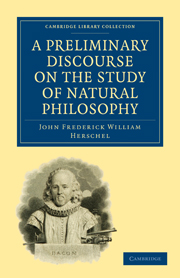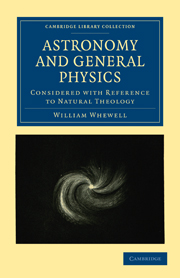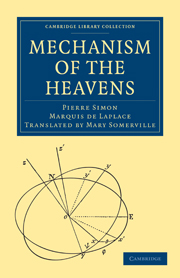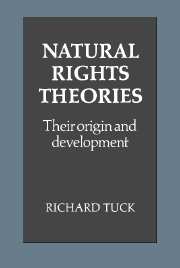A Preliminary Discourse on the Study of Natural Philosophy
Astronomer and philosopher J. F. W. Herschel's A Preliminary Discourse on the Study of Natural Philosophy, originally published in 1830, can be regarded as the first modern work on the philosophy of science. In this book, Herschel carefully sets out what he regards as the principles and methods of scientific investigation, both at a theoretical level and at the level of experiment or observation. He describes nature as being governed by laws which are difficult to discern by mere observation and so deduces that theoretical science requires analogical reasoning. In the Discourses, written as the first in a series called Cabinet Cyclopaedia, he covers a wide range of methodological, scientific and philosophical subjects that include discussions of contemporary astronomy, atomism and chemistry. His writing on light is heavily influenced by Newton. Herschel also ponders the differences between human beings and animals and the relationship between religious faith and scientific enquiry.
Product details
July 2009Paperback
9781108000178
388 pages
216 × 140 × 22 mm
0.49kg
Available
Table of Contents
- Part I. Of the General Nature and Advantages of the Study of Physical Sciences:
- 1. Of man
- 2. Of abstract science
- 3. Of the nature and objects
- Part II. Of the Principles on which Physical Science Relies for its Successful Prosecution, and the Rules by which a Systematic Examination of Nature Should be Conducted, with Illustrations of their Influence as Exemplified in the History of its Progress:
- 4. Of experience
- 5. Of the analysis of phenomena
- 6. Of the state of physical science in general
- 7. Of the observation of facts and the collection of instances
- 8. Of the classification of natural objects and phenomena
- 9. Of the first stage of induction
- 10. Of the higher degrees of inductive generalisation
- Part III. Of the Subdivision of Physics into Distinct Branches, and their Mutual Relations:
- 11. Of the phenomena of forces
- 12. Of the communication of motion through bodies
- 13. Of cosmical phenomena
- 14. Of the examination of the material constituents of the world
- 15. Of the imponderable forms of matter
- 16. Of the causes of the actual rapid advance of the physical sciences.







